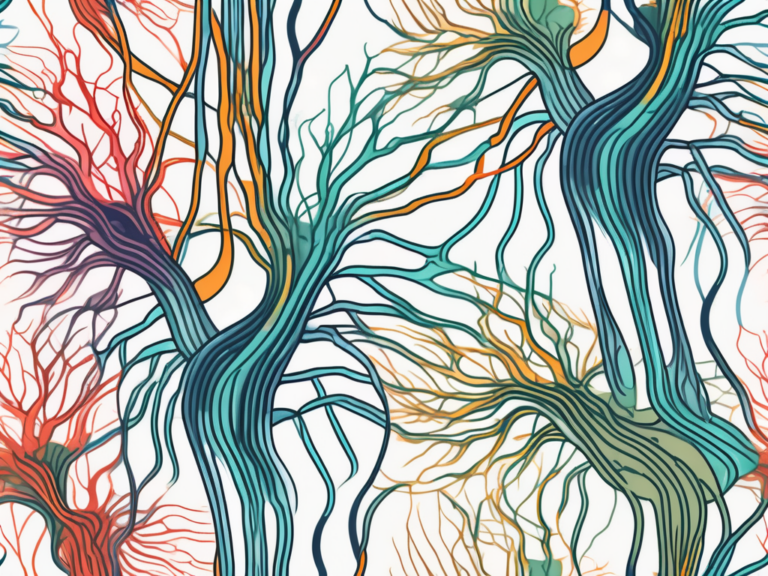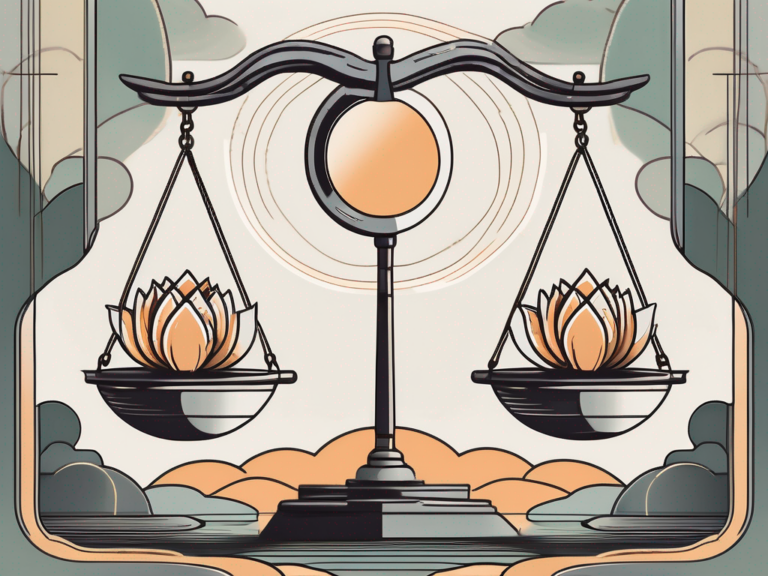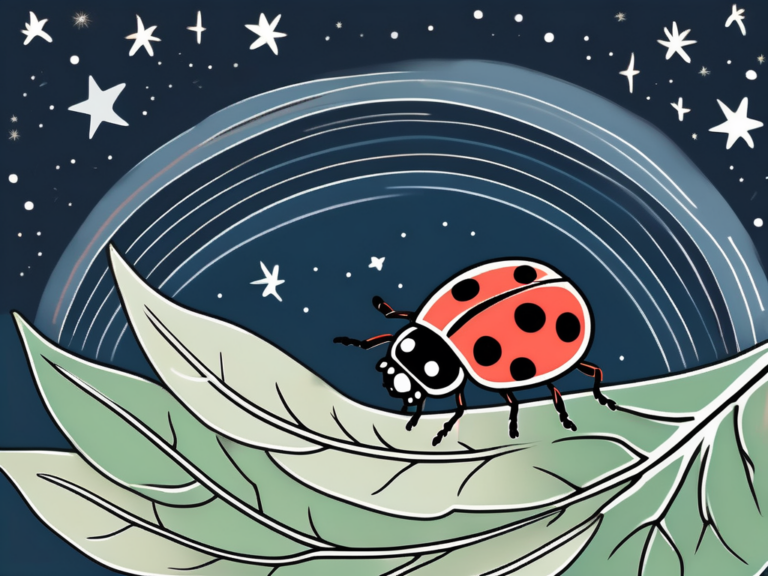Exploring the Rich Legacy of 19th Century French Poetry
In the realm of literature, few periods can rival the richness and significance of 19th-century French poetry. Bursting with passion, innovation, and introspection, this era of artistic expression left an indelible mark on both French and global literature. From the tumultuous historical context to the influential figures and defining characteristics, let us embark on a journey to unravel the allure and enduring power of 19th-century French poetry.
Understanding the Historical Context of 19th Century France
Before delving into the realm of poetry, it is crucial to grasp the historical backdrop that shaped this extraordinary era. The early 1800s were marked by political and social upheaval, with France still reeling from the aftermath of the French Revolution. This backdrop of revolutions, unrest, and shifting power dynamics infused the poetic verse with a sense of urgency and radicalism.
The Influence of the French Revolution on Poetry
The French Revolution, a defining moment in history, was a wellspring of inspiration for poets. It ignited a spirit of rebellion and the desire for political and social reform. Poets, such as Victor Hugo and Alphonse de Lamartine, captured the fervor and ideals of the revolution, immortalizing them in their verses. The themes of liberty, equality, and brotherhood resonated deeply in the hearts of both poets and readers.
As the revolution unfolded, poetry became a medium to voice dissent and critique the existing power structures. Poets painted vivid pictures of the struggles and hopes of the masses, conveying their desire for change. The poetry of this period reverberated with the ideological battles of the time, leaving an indelible imprint on the literary landscape.
The Role of Industrialization in Shaping Literary Themes
While the French Revolution set the stage for poetic revolution, the spirit of change extended beyond the political realm. The advent of industrialization, with its transformative impact on society, provided another source of inspiration for poets.
As factories sprung up and cities expanded, poets grappled with the alienating effects of urbanization and the changing nature of human existence. They sought solace and meaning amidst the rapidly evolving world, often turning to nature and the countryside as a counterbalance.
Moreover, industrialization brought to the forefront issues of inequality, class struggle, and the dehumanizing effects of progress. Poets like Charles Baudelaire captured the angst and disillusionment of this time, immortalizing the struggles of the working class and challenging the prevailing notions of beauty and art.
It is fascinating to note that the impact of industrialization was not limited to the physical landscape but also permeated the psyche of individuals. The rapid pace of technological advancements and the rise of consumer culture left many feeling disconnected from their own humanity. Poets, in their quest for authenticity and meaning, explored the depths of this existential crisis, delving into the complexities of human emotions and the search for identity in a rapidly changing world.
Furthermore, the industrial revolution brought about a reevaluation of traditional gender roles and societal norms. Women, in particular, found their voices and agency in the face of societal expectations. Poets like Louise Ackermann and Marceline Desbordes-Valmore emerged as powerful voices, challenging the patriarchal structures and advocating for women’s rights.
Key Figures in 19th Century French Poetry
Central to the legacy of 19th-century French poetry are the remarkable individuals who pushed the boundaries of the art form and forever changed its course. Let us now turn our attention to a few of these influential figures.
Charles Baudelaire and the Birth of Modernism
Among the luminaries of 19th-century French poetry, Charles Baudelaire stands as a towering figure. His collection “Les Fleurs du Mal” (“The Flowers of Evil”), published in 1857, marked a watershed moment in the history of poetry.
Baudelaire took poetry to daring new realms, exploring themes of decadence, sensuality, and the darker aspects of human existence. His piercing observations and mastery of language captivated readers while challenging societal norms and established literary conventions.
In “Les Fleurs du Mal,” Baudelaire delves into the depths of the human psyche, exposing the raw emotions and hidden desires that lurk beneath the surface. His poems are like windows into the soul, revealing the complexities of human nature in all its beauty and ugliness.
Paul Verlaine: The Voice of Symbolism
Enter the world of Symbolism, a movement that sought to unveil deeper truths through suggestive and often abstract imagery. At the forefront of this revolution was Paul Verlaine, whose elegantly woven words created an ethereal tapestry.
Verlaine’s poetry showcased a masterful command of form and music, with his words evoking emotions and sensations rather than adhering to strict narrative structures. His work, exemplified by “Fêtes galantes” and “Romances sans paroles,” influenced poets for generations to come, including the likes of Stéphane Mallarmé and Arthur Rimbaud.
Verlaine’s verses are like delicate brushstrokes on a canvas, painting vivid pictures in the reader’s mind. His use of symbolism allows for multiple interpretations, inviting readers to explore the depths of their own imagination and emotions.
Arthur Rimbaud: A Revolutionary in Verse
A rebel to his core, Arthur Rimbaud shook the foundations of traditional poetic expression. His precocious talent and audacious disregard for convention laid the groundwork for surrealism, as evident in his work “Les Illuminations.”
Rimbaud’s poems pushed boundaries, blurring the lines between reality and imagination. His vivid descriptions and relentless quest for new artistic frontiers transformed the very essence of what poetry could be.
In “Les Illuminations,” Rimbaud takes readers on a journey through dreamlike landscapes and surreal encounters. His words create a sense of disorientation and wonder, challenging the reader to question the limits of their own perception.
These three figures, Baudelaire, Verlaine, and Rimbaud, each left an indelible mark on the world of poetry. Their innovative spirit and unyielding pursuit of artistic freedom continue to inspire poets and readers alike, reminding us of the power of words to transcend boundaries and ignite the imagination.
Defining Characteristics of 19th Century French Poetry
As we continue our exploration, it becomes clear that 19th-century French poetry was a melting pot of diverse themes and styles. Several defining characteristics emerged, shaping the very essence of this era.
The Rise of Symbolism and Decadence
The emergence of Symbolism and Decadence was a defining feature of 19th-century French poetry. Symbolist poets, such as Paul Verlaine and Stéphane Mallarmé, sought to convey the ineffable and transcendental through evocative language and rich symbolism.
Symbolism, with its emphasis on suggestion and the exploration of the subconscious, allowed poets to delve into the depths of human experience. They crafted intricate metaphors and employed vivid imagery, inviting readers into a realm of hidden meanings and elusive truths.
The pursuit of decadence, epitomized by Charles Baudelaire, explored the darker aspects of human existence and the allure of the forbidden. These poets immersed readers in a world of sensuality, exploring the limits of pleasure and pain. They dared to challenge societal norms and embrace the unconventional, pushing the boundaries of artistic expression.
The Role of Nature and Romanticism
Nature, with its timeless beauty and spiritual significance, played an integral role in the poetry of this era. Influenced by the Romantic movement, poets found solace and inspiration in the natural world, seeking to transcend the limitations of human existence and connect with something greater.
Romantic poets, such as Lamartine and Victor Hugo, painted breathtaking landscapes and celebrated the power and sublime beauty of the natural world. Their verses captured the awe-inspiring grandeur of mountains, forests, and seas, inviting readers to revel in the splendor of creation.
Through their exploration of nature, these poets also explored the depths of human emotions. They saw in the natural world a reflection of their own inner turmoil and longing. The crashing waves mirrored their tumultuous passions, while the gentle breeze whispered secrets of the heart.
The Exploration of the Human Condition
At the heart of 19th-century French poetry lay a profound exploration of the human condition. Poets delved deep into the complexities of love, desire, and the fragility of existence.
They laid bare their innermost thoughts and emotions, grappling with questions of identity and purpose. Their words resonated with readers, offering a glimpse into the shared experiences and struggles of humanity.
Through their poetry, these writers sought to capture the essence of what it means to be human. They navigated the intricacies of relationships, the fleeting nature of happiness, and the profound impact of loss. In their verses, they found solace and understanding, and they invited readers to embark on a journey of self-discovery and introspection.
The Impact of 19th Century French Poetry on Global Literature
The influence of 19th-century French poetry extended far beyond the borders of France, permeating the literary landscape of other nations and leaving an indelible mark on global literature.
At the heart of this cultural phenomenon was the Romantic movement, which swept across Europe like a tempest, stirring the souls of poets and readers alike. English Romantic poets, such as Percy Bysshe Shelley and John Keats, were among the first to feel the poetic ripples of 19th-century France. The Channel, once a formidable barrier, became a conduit for inspiration, as the works of French poets found their way into the hands of eager English readers.
The Romantic movement, with its focus on individuality, imagination, and introspection, found fertile ground in the works of French poets. The ethereal beauty of Victor Hugo’s verses and the melancholic musings of Charles Baudelaire resonated deeply with the English poets, igniting a creative fire within them. The influence of these French masters can be seen in the passionate and introspective poems of Lord Byron and the sublime nature-inspired verses of William Wordsworth.
The Legacy in Modern French Literature
Even in the modern era, the legacy of 19th-century French poetry continues to reverberate. French poets, such as Charles Péguy and Guillaume Apollinaire, built upon the foundations laid by their predecessors, infusing their work with new perspectives and innovative techniques.
These modern French poets, while paying homage to the past, forged their own paths, exploring new realms of thought and emotion. Péguy, with his powerful social and political commentary, challenged the status quo, while Apollinaire, with his avant-garde style, shattered traditional poetic conventions. Their contributions to French literature not only honored the legacy of their 19th-century predecessors but also pushed the boundaries of poetic expression into uncharted territories.
The Echoes in Contemporary Poetry Worldwide
The impact of 19th-century French poetry extends far beyond the borders of France and transcends time. Poets around the world, whether they are writing in English, Spanish, or any other language, continue to draw inspiration from the profound artistry and bold experimentation of their French predecessors.
The raw emotions, heightened imagery, and innovative use of language pioneered by 19th-century French poets resonate with poets worldwide. From the bustling streets of Buenos Aires to the serene landscapes of Kyoto, the echoes of this poetic revolution can be heard in the verses of contemporary writers. They carry the torch passed down through the generations, forging new paths and stretching the boundaries of expression, just as their French predecessors did.
The Enduring Appeal of 19th Century French Poetry
Why does 19th-century French poetry continue to captivate readers and wield such enduring appeal? The answer lies in the timeless themes it explores, the inherent beauty of its language, and its ability to evoke a deep emotional response.
The Timeless Themes Explored
From love and longing to existential angst and the fleeting nature of life, the themes explored in 19th-century French poetry resonate with the human experience across generations. The poetry of this era delves into the depths of the soul, inviting readers to ponder the universal questions that define our existence.
Through their words, poets illuminate facets of human nature that remain unchanging, speaking to our deepest fears, desires, and joys. They remind us of our shared humanity and the timeless struggles we all face.
The Artistic Beauty of the Language
Language, in the hands of these gifted poets, becomes a work of art in itself. The rhythms, metaphors, and carefully crafted verses infuse their words with a musicality that enchants readers.
French, known as the language of love, possesses a poetic quality that lends itself to expressive and evocative verse. The mastery of language exhibited by these poets elevates their work to a realm of sheer artistic beauty, transporting readers to new realms of imagination.
The Emotional Resonance with Readers Today
Above all, the enduring appeal of 19th-century French poetry lies in its ability to evoke powerful emotions and resonate with readers today. The raw honesty and vulnerability of the poets, coupled with their exploration of the human condition, create an intimate connection between poet and reader.
Whether it be the heart-wrenching lamentations of loss or the intoxicating ecstasy of love, the emotions conveyed through these verses transcend time. They evoke a response within us, touching the deepest recesses of our soul and reminding us of the profound impact that poetry can have on our lives.
Unveiling the Beauty of 19th Century French Poetry
As we explore the rich legacy of 19th-century French poetry, it becomes abundantly clear that this is an era of unparalleled artistry and emotional depth. From the historical context that birthed it to the influential figures who shaped its course, every aspect of this movement is worthy of our attention.
Let us revel in the beauty of the language, immerse ourselves in the timeless themes, and embrace the enduring power of 19th-century French poetry. In doing so, we not only honor the past but also ensure that its echoes continue to resonate with generations yet to come.






